
阿聯酋/ANDOC:利用最新的脫碳技術
~Tsubame BHB:利用下一代氨生產技術實現脫碳
~JEPLAN:推出新型塑膠瓶回收技術
NHK | 為您帶來商業專題文章摘要。
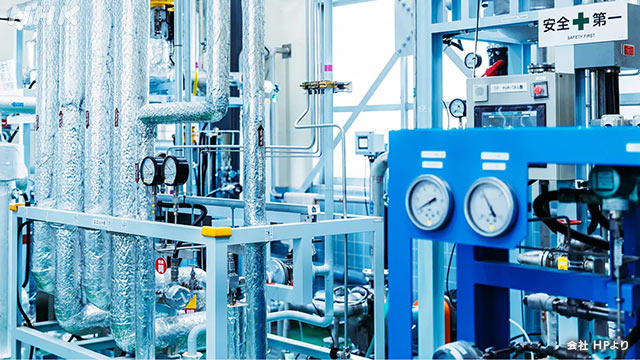
Tokyo Institute of Technology: Tsubame BHB
Next-generation ammonia production technology holds promise as a decarbonized fuel.
Japanese startup companies are attracting attention.
Using Japanese ammonia technology for decarbonization:
Ammonia does not emit carbon dioxide when burned.
1. Used as fuel for ships instead of heavy oil.
2. It is used in place of coal for thermal power generation.

Traditional ‘Haber-Bosch method’:
The production of ammonia by the ‘Haber-Bosch process’ was established 100 years ago.
However, synthesis in a high-temperature, high-pressure environment is required. Manufacturing requires large-scale equipment.
Tsubame BHB’s ammonia catalyst technology:
BHB has developed its own catalyst technology. Successfully produced ammonia under low temperature and low pressure conditions.
Ammonia can be produced safely with small-scale equipment. Significant cost reduction possible.

Partnership with UAE/ANDOC:
The UAE’s national oil company took note of this technology and signed a joint research and development agreement.
In the future, we aim to start manufacturing locally in the UAE/ANDOC.
Tsubame BHB: CEO Koji Nakamura
It uses cheap renewable energy from the UAE and Tsubame BHB’s ammonia production technology.
Achieve decarbonization in the energy and fertilizer fields.
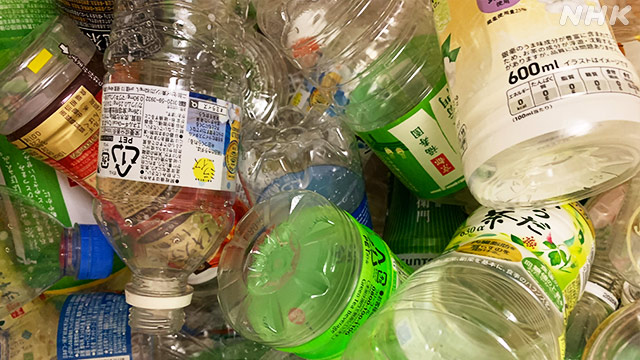
Japanese recycling technology:
His recycling of plastic bottles cuts CO2 emissions in half.
A Japanese company that is attracting attention for its innovative recycling technology.
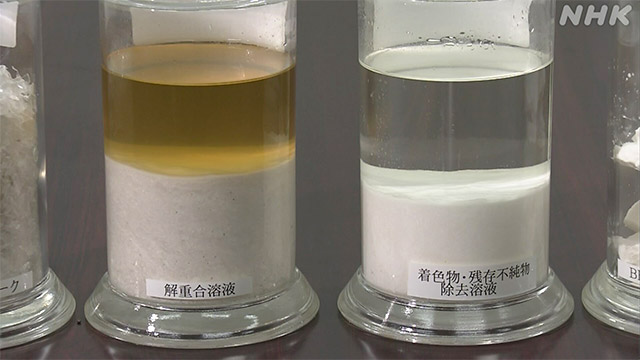
Japanese startup: ‘JEPLAN’
‘JEPLAN’ is a company that deals with plastic bottle recycling.
Recycling plastic bottles made from petroleum is extremely important for decarbonization.
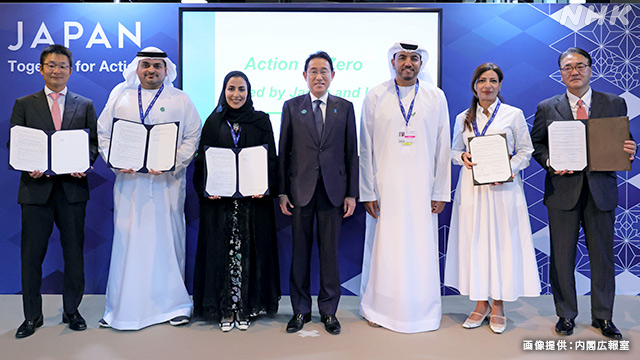
Partnering with UAE companies:
On December 2nd, at the COP28 venue, in the presence of Prime Minister Kishida, we entered into a partnership with a UAE company.
Number of plastic bottles
In the case of Japan, the number of plastic bottles shipped in 2022 was 24.1 billion.
Carbon dioxide emissions amounted to 2.11 million tons.
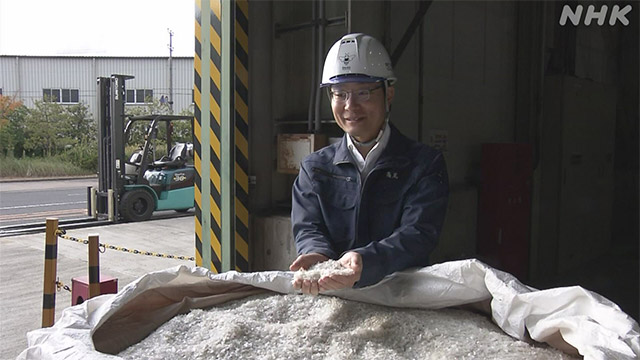
JEPLAN recycling technology:
Take advantage of this company’s recycling technology.
It is possible to “cut CO2 emissions in half” by recycling rather than “manufacturing new PET bottles.”
Recycling process:
Currently, approximately 86% of plastic bottles sold are recycled.
However, only 29% of plastic bottles are recycled back into plastic bottles.
The reason is that impurities are included during the recycling process.
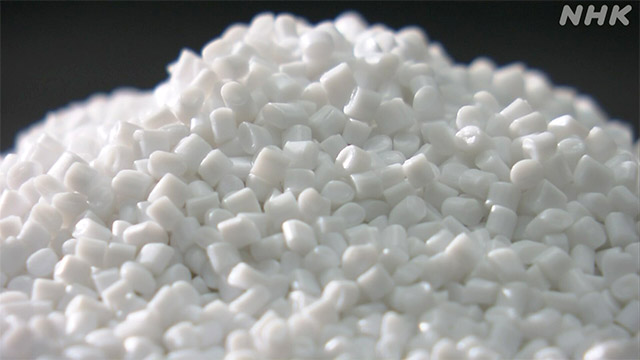
Chemical recycling technology:
~ New technology emerges to improve recycling of PET bottles
JEPLAN has developed a new technology called ‘chemical recycling.’
~Decomposes impurities through chemical recycling
1. Dissolve used plastic bottles in ethylene glycol and break them down to molecular level.
2. Remove impurities using activated carbon.
3. Recycle to the same quality as new plastic bottles.
The strength of chemical recycling is its high ability to remove impurities.
It can be recycled over and over again.
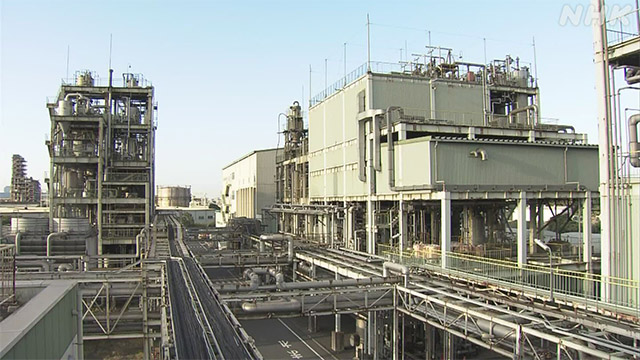
Japanese chemical recycling factory:
A 48,000m2 recycling factory has already been constructed in Japan.
It is possible to recycle 22,000 tons (= 1 billion 500ml bottles) per year.
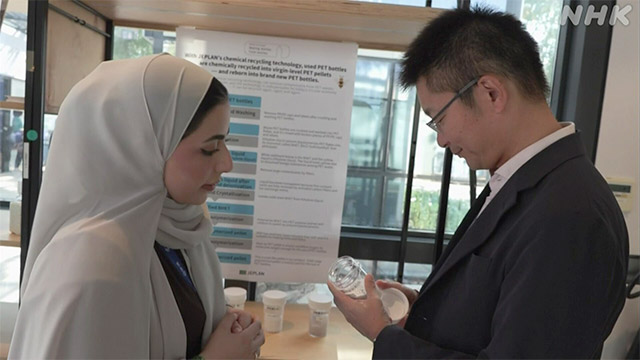
Construction of new factory in UAE: (December 4th)
We are in talks with a UAE company to build a large-scale recycling plant.
Solar power generation cost:
UAE has a lot of sunshine. There is vast flat land, and the cost of generating electricity is low.
1. Solar power generation cost is about one-fourth of Japan.
2. It costs only 3 yen per kwh.
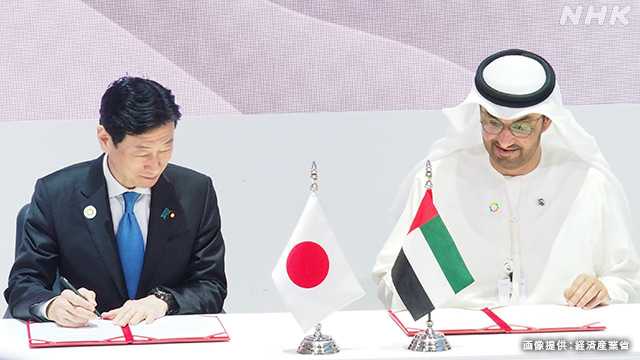
The Japanese government also supports overseas expansion
In January, Minister of Economy, Trade and Industry Nishimura and UAE Minister of Industry and Advanced Technology Jaber attended.
We have moved to strengthen collaboration with the UAE in order to build relationships with UAE companies.
https://www3.nhk.or.jp/news/html/20231206/k10014279431000.html